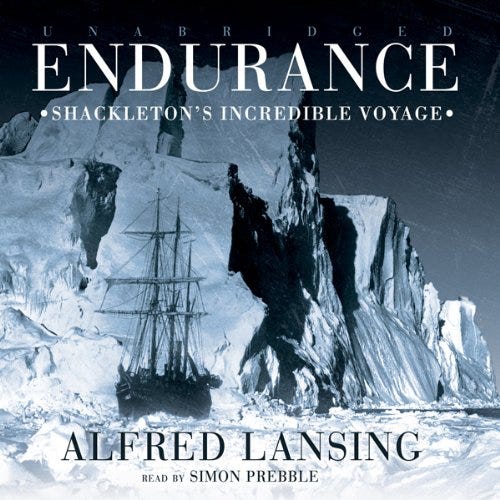My notes are the cornerstone of my success, allowing me to achieve remarkable milestones in record time:
Become a recognized specialist in DevOps Engineering
Write over 200 blog posts on my website
Grow a YouTube channel to 10k subscribers
Obtain multiple certifications quickly
All while working a full-time job.
How I Got into Notetaking
Three years ago, I made a career shift to the tech industry. After numerous earlier attempts to change my career, this time I was going all-in. Knowing I had found my passion, I was prepared to do anything to make my dream of a career in tech come true.
Although I had accumulated a lot of knowledge from a decade of weekend and evening hobby work with programming and Linux, I faced a daunting amount of information to learn.
I needed to look for ways to make my learning as efficient as possible, and during this research I came across productivity YouTubers like Ali Abdaal and Tiago Forte.
I quickly recognized a pattern in the productivity systems I was researching:
All of them shared a well-organized notetaking system.
I knew what I needed to do. I read all of the books, watched all of the videos. I went deep into the rabbit hole.
But I have 0 regrets.
Before I started
It is likely that you have a collection of notes of some kind. It is also likely that there is very little intentionality to that note collection.
If you are like me 3 years ago, you probably have a collection of notebooks from your school and college days, a Google Drive with a messy accumulation of folders with unclearly named files in them, and more notes spread over various other systems you’ve tried over the years.
How often do you revisit these notes?
Probably never.
Why not?
Because there is no structure in place that makes it easy to find your notes.
Because you have no reason to revisit them.
Why Take Notes?
There are three main benefits to taking notes.
Notetaking fosters understanding through writing
Notes can be used to create new ideas and content
A well-organized system allows you to retrieve information quickly
Writing is Understanding
Taking notes on the topics that interest me helps me to understand the subject much better, because it forces me to clearly formulate my thoughts and convert them to written form.
If I can’t write about something, I don’t understand the topic.
Clear thinking becomes clear writing; one can’t exist without the other. William Zinsser, On Writing Well
When you force yourself to take notes in your own words, you engage in a process of deep thought. A process similar to translation takes place. It is this process, this deep engagement with the topic you are studying, that will lead to deep understanding.
Then you can reflect on how your notes relate to other notes in your collection.
Notes Become Output
My approach to my notetaking system is centered around two fundamental principles: input and output. You have to start seeing yourself as a factory that consumes input, links it together with your own unique set of thoughts and emotions, and creates output of some kind. This perspective helps streamline the process of turning what you consume into something productive and meaningful.
The input to the system is the content you consume. Books, podcasts, YouTube videos, and courses all contribute valuable information. But it doesn’t stop there—meeting notes from work, conversations with friends, or random encounters in life are also inputs to the system. Every experience and piece of information you come across can be captured and linked in your Zettelkasten, enriching your knowledge base.
The output of your system can take many forms. For me, it’s very clear: I’m a content creator. I write blog posts, create YouTube videos, and develop courses. This is how notes can become profitable.
Notetaking systems
In the upcoming editions of this newsletter, we will dive into notetaking systems, the Zettelkasten method, notetaking tools, and how notetaking will increase our productivity.
However, if you are already eager to start your notetaking journey, you can check out my Udemy course on the Zettelkasten Method here:
The Zettelkasten Method on Udemy
I have poured my heart and soul into this course, and it has gotten plenty of good feedback from the Skool community already.
Productivity and notetaking are a huge rabbit hole to go down. I have spent almost 2000 hours researching and practicing my notetaking system.
I have distilled everything down into this course for you. This is your chance to learn from a true master of notetaking with actual results, not just a YouTube kid who rides another productivity hype train.
Start learning today on Udemy.
Alternatively, if you’d like to get unlimited access to all of my courses, 3 weekly Q&A calls and a vibrant community of notetakers and passionate engineers, consider my Skool community:
Updates
My first week as a freelancer was a blast. Finally, I can pour all my time in what I have come to like most: building my Skool community, writing and creating content. I’m working on growing my Twitter account and I’ve been posting a lot more on LinkedIn. It’s becoming a fun game to see the analytics rise with the efforts I put in.
Reading
During my walks and chores, I’ve been listening to Endurance. It’s about a failed Antarctic expedition by Ernest Shackleton. When their ship becomes stranded, they are forced to survive with what they have available, and somehow make their way back to civilization. It truly places any minor aches or pains in perspective.
Working
I have no updates to give on the freelance journey. I’m still working 12 hours a day, but instead of working for a company I don’t own, I’m now pouring it all into my own creations and business. It feels amazing. I have a few application processes for freelance work, and I’m happy to work on my own stuff in the meantime.






